Root cellars might be old fashioned, but they still work wonderfully for storing food and other goods. This is because they maintain a generally constant, cool temperature and constant humidity level, both helping the gods kept in them to last longer than they would otherwise.
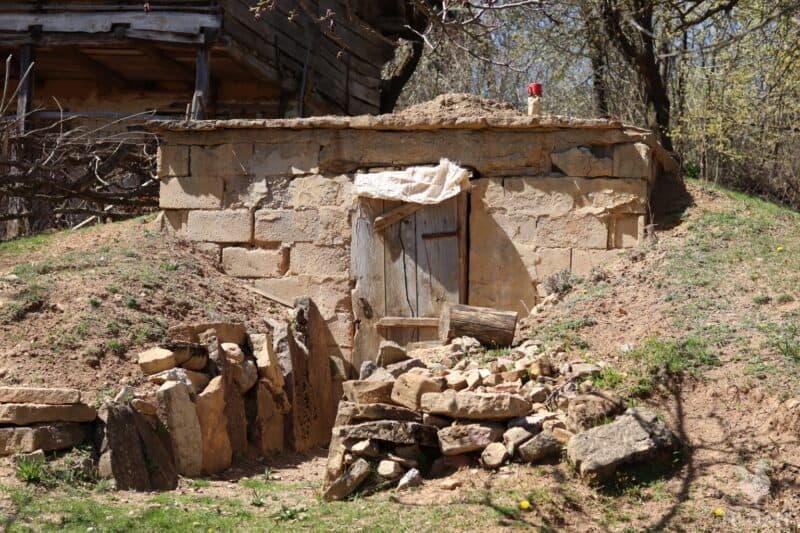
This simple but highly effective method of preservation has been used for ages, and is still used today.
So, what exactly can you store in a root cellar?
Root cellars are ideal for keeping vegetables, fruit, nuts and herbs in long-term storage, but also work well to keep meat, bread and even dairy goods. Other items like wine and beer may also benefit from root cellars storage.
What all can you put in a root cellar? The answer to that question may surprise you. In this post, we’ll go through the many things you can keep in a fruit cellar and provide you with some suggestions on how to make the most of your root cellar for all your food preservation and homesteading needs.
Why are Root Cellars Good for Food Storage?
When it comes to food storage in a root cellar, there are a few things to consider. Root cellars are usually cool (or cooler than the surrounding air), moisture-controlled, and well ventilated, which all work together to prevent fermentation in food and stop bacteria from breeding.
Both contribute to spoilage and loss of food. While it is helpful to understand the fundamental principles of fruit and vegetable storage in a root cellar, all you really need to know at the end of the day is that root cellars have been used successfully for a very, very long time.
Most foods contain a certain amount of sugar, sugar that bacteria loves. Since sugar promotes fermentation at higher temperatures, keeping food in the root cellar, a cooler environment slows the process and thereby extends usable shelf life.
The near-constant humidity of a root cellar also helps some foods, like many kinds of produce, stay supple and fresh.
This means you’ll “rank” your storage in your root cellar, storing high-sugar foods at the bottom of the cellar since they’ll last longer if kept even colder and drier. Fruits, vegetables and other items that better tolerate moisture or items that have little sugar can be stored safely higher up.
Containers filled with straw or other cushioning is sometimes needed to protect fruits and veggies from being bruised, which contributes to rotting.
Generally, if your food is kept cool and dark (and dry, if needed) they’ll be fine. Sounds like a root cellar is perfect! Let’s see what we can keep in there below.
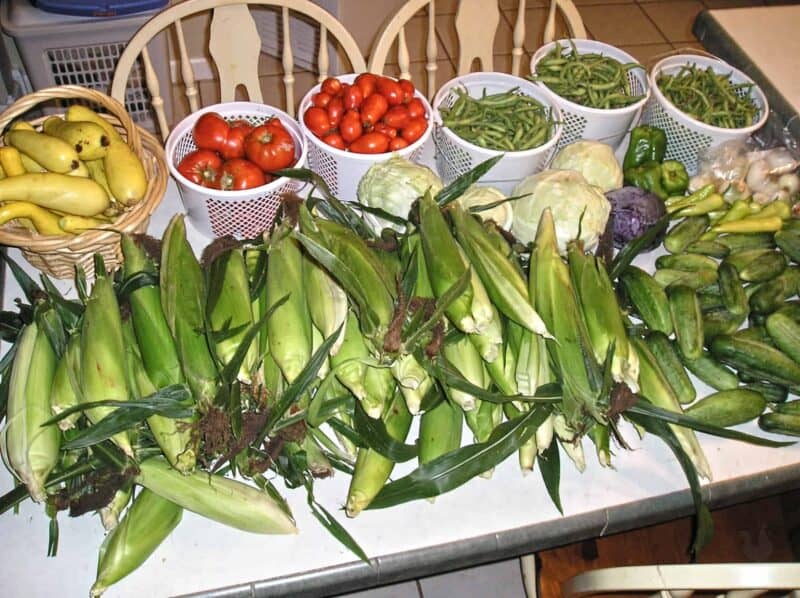
Veggies
Having a root cellar is an easy way to preserve all kinds of vegetables from spoiling before you get a chance to eat them. Many veggies are suitable for storage in a root cellar, and since they are also generally hardier than fruits they’ll do quite well over time.
As you might have deduced from the name, root vegetables like carrots, beets, horseradish, parsnip, potatoes and onions are all great examples of veggies that may be stored for a long time in your root cellar.
These root veggies have a longer shelf life than other vegetables. Expect your root veggies to keep up to six months in ideal conditions.
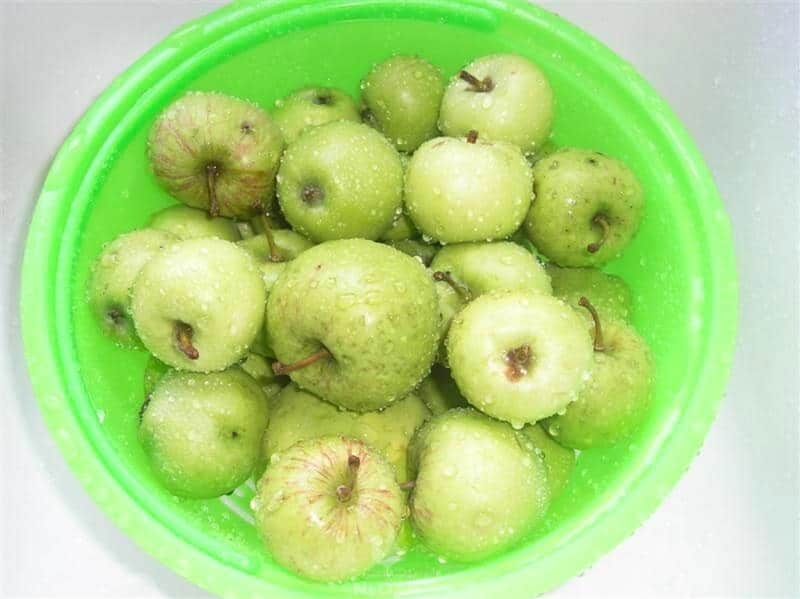
Fruits
Depending on the type, fruits stored in a root cellar may last months or even years. Apples, pears, tomatoes, grapefruit, lemons, oranges and grapes are fine for lengthy storage in a root cellar.
These fruits can all be kept for an extended period of time in any cool, environment and your root cellar is ideal for the task. The greatest benefit of keeping any fruit in a root cellar is that it requires minimal effort from you to extend its shelf life.
Your root cellar will prevent your fruit from rotting or turning moldy because of the temperature- and moisture-stable conditions.
Keep an eye on where you place your fruit since some varieties emit gasses while ripening that will in turn speed up the ripening (and spoilage!) of other nearby produce.
Meats
Preserved meats do great in a root cellar. Jerky, pemmican, smoked or salted pork, and other similar meat dishes may last for many weeks or even months on end with no issues.
Fresh meats like beef, ham, bacon, and sausage, can all be kept in a root cellar to usefully extend their shelf life, too. However, it should be pointed out that most root cellars fall short of proper refrigeration levels of cold needed to keep fresh meat from spoiling.
To keep your meat longer in a root cellar, ensure that you place it near the floor in the coldest part, and that constant ventilation is maintained. Also keep in mind infestation of pests may be a big problem when storing meats in your root cellar, so keep an eye out.
The ideal time to store meat in your root cellar is during prolonged cold weather that will lower the interior temp even more than normal.
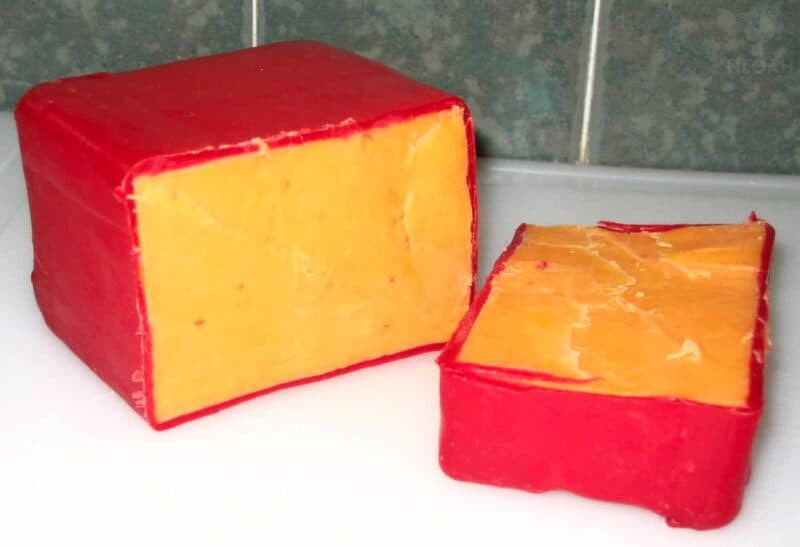
Dairy Products
Believe it or not, your root cellar can also be used to keep dairy items like milk and cheese! When milk is kept in a root cellar, it can remain fresh for up to two weeks. For long-term preservation of cheese, hard cheeses should be considered.
Hard cheeses can last six months, even longer, and will always keep better in your cellar than soft cheeses. Your soft cheeses will, though, enjoy a longer shelf life in the root cellar than they would just sitting around in your kitchen.
Your root cellar is a fantastic storage option for those who want to keep fresh dairy products on hand a little longer with certainty, especially if you reside in a colder area where the ambient temperatures can drop the interior temp even lower.
On the other hand, if you live in a hot area, your root cellar may never get cool enough for keeping dairy at all.
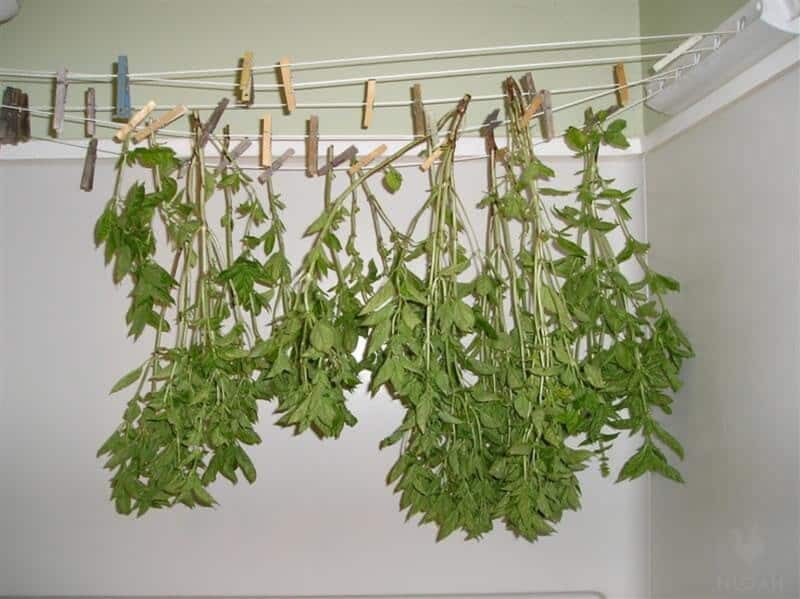
Fresh or Dried Herbs
Fresh and dry herbs both do wonderfully in a root cellar. Fresh herbs will stay fresh for a week or more, but dried herbs may last for years if properly stored in the right container or bag.
When hanging or shelving your herbs, keep in mind that some fresh herbs give off gasses that hasten fruit and vegetable ripening in a manner similar to other produce.
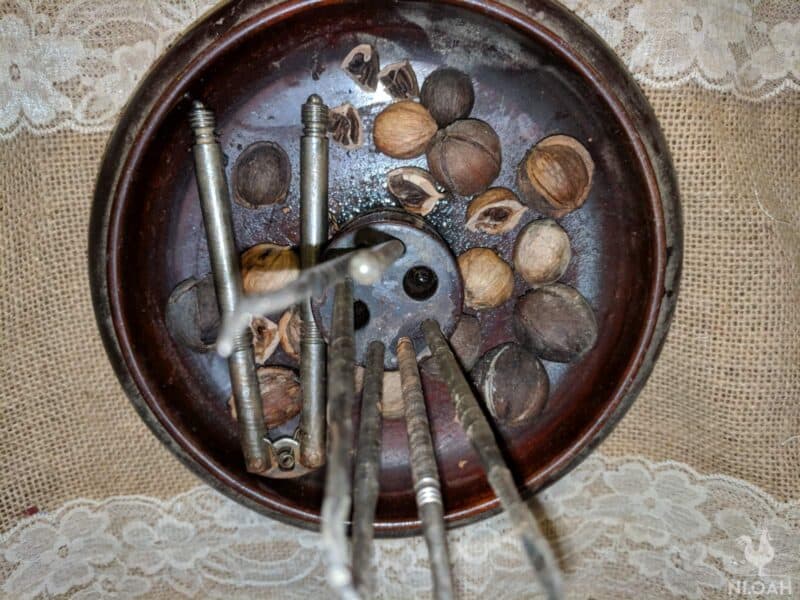
Nuts
When properly stored in suitable containers or bins, most tree nuts can last up to six months. Before putting the nuts away, it’s essential that they’re completely dry because damp nuts (no jokes) will go rancid and subsequently raise the overall humidity of the root cellar, potentially causing a domino effect of spoilage!
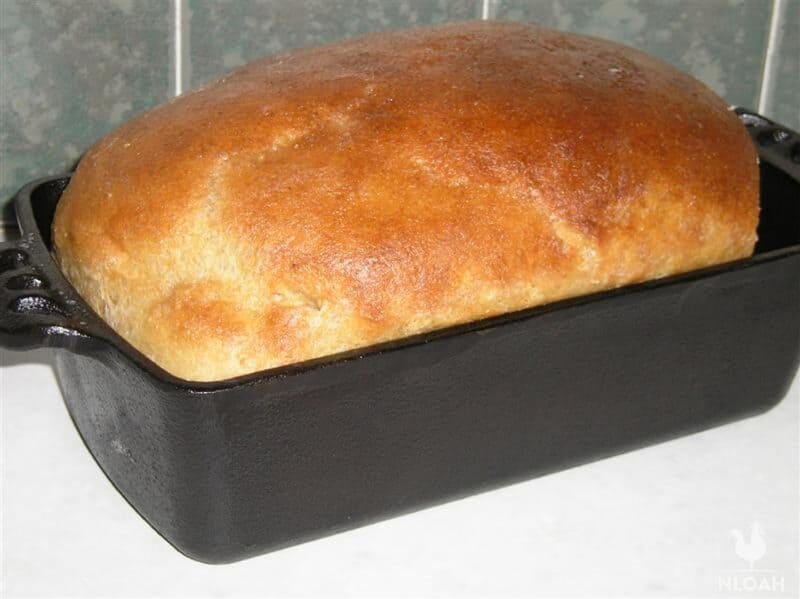
Breads
Fresh, crusty breads can keep for a week or more in your root cellar. This is particularly helpful if you live in a hot, humid area where bread, and in particular soft bread, develops mold spots quickly.
Wine and Beer
Your root cellar is the perfect place to keep wine and beer you make yourself. When wine is kept in a root cellar it will remain good for up to six months, while beer can be expected to stay fresh for upwards of two months.
Again, cooler is always better when storing these beverages since warm temps will cause your wine to sour, and beer to go rancid rapidly.
Root Cellars Store it All
A root cellar is an ideal alternative to modern refrigeration for prolonging the shelf life of your food such as veggies, fruits, meats, dairy goods, herbs and baked bread. It’s even useful for preserving wine and beer.
A cool, dark, and well-ventilated location is usually the ideal for long-term storage for food of all kinds, so make good use of your root cellar for all your preservation needs.
Tom has lived and worked on farms and homesteads from the Carolinas to Kentucky and beyond. He is passionate about helping people prepare for tough times by embracing lifestyles of self-sufficiency.

We recently built a root cellar. I get overwhelmed at what is best to have if you needed to care for family for awhile with out power or no way to get into town for awhile. Getting started and how to store items to last the longest. Flour, sugar, herbs, pasta etc. also can you store food that are already in cans in a root cellar? Please give me your thoughts on this and more .
I’m a bit confused. You state in your article that root cellars are cool and dry… but everything I’m reading about root cellars says that they are supposed to be, and usually are very humid and vegetables are preserved better in 85% – 90% humidity.
I am planning to build one soon but I am confused by all of the conflicting information. 🙁
Not only do rodents find the meat, they LOVE the veggies! Maybe you could share an article on keeping rodents out of the root cellar, whether outside or in the basement, and greenhouses and gardens! Love that root cellar……….